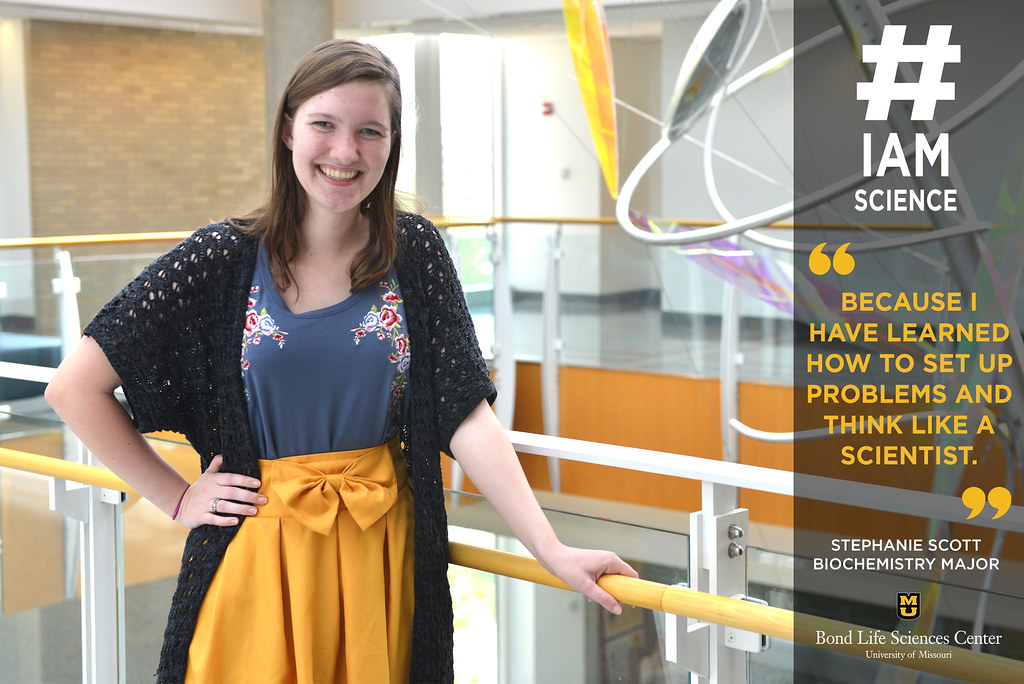
By Allison Scott | Bond Life Sciences Center
Students choose colleges for a number of reasons: location, price, programs offered. Stephanie Scott was just a kid the first time she stepped onto Mizzou’s campus, and she knew it was the school for her.
“We took a field trip, and I fell in love with the place because it had three swimming pools,” Scott said.
While that’s not a typical selling point for places of higher education, it proved enough to plant the seed for Scott, who works in the Thelen Lab at Bond LSC and just finished up her freshman year.
Scott’s didn’t end up in Bond LSC accidentally, either. She’s a Discovery Fellow through the Honors College, which gives her a scholarship to work as a research assistant.
“The program paired me with Dr. Thelen and Eric Fedosejevs as my mentor,” Scott said.
The campus-wide program allows students of all majors to get involved in research for two years, and it has opened the door for Scott to get started in hands-on science early.
In the lab, Scott works to isolate plastids — which contribute to the food-making abilities and color of plants — in soybeans.
“First, we pick the leaves or beans and keep them on ice. Then, we go back down to the lab and run them through a juicer to break them up,” Scott said. “We run them in an isolation buffer and, after that, we spin them down in the centrifuge to get the plastids to pellet out of the solution. Then we re-suspend the pellet and layer that over a sucrose gradient.”
That process understandably takes all day, but it’s something Scott has found a passion for. And it has the possibility to make a big impact — the ultimate goal is to get more oil out of soybeans to increase the food supply.
“I think it’s fun,” Scott said. “It’s a challenge because the plastids behave differently every time. They’re really finicky.”
And her introduction to research so early in her college career has made Scott evaluate the ways in which her future could incorporate the lab.
“When I first came here, I was dead set on being pre-med,” Scott said. “I was planning on using research as a stepping stone, but since I’ve started actually working in the lab I figured out I love it. I feel like I might actually make a difference.”
Really, that’s all she could ask for.
“If I didn’t like research so much, I wouldn’t care as much as I do,” Scott said. “I love the people I work with, too, and that makes it seem like it’s not even a job.”

